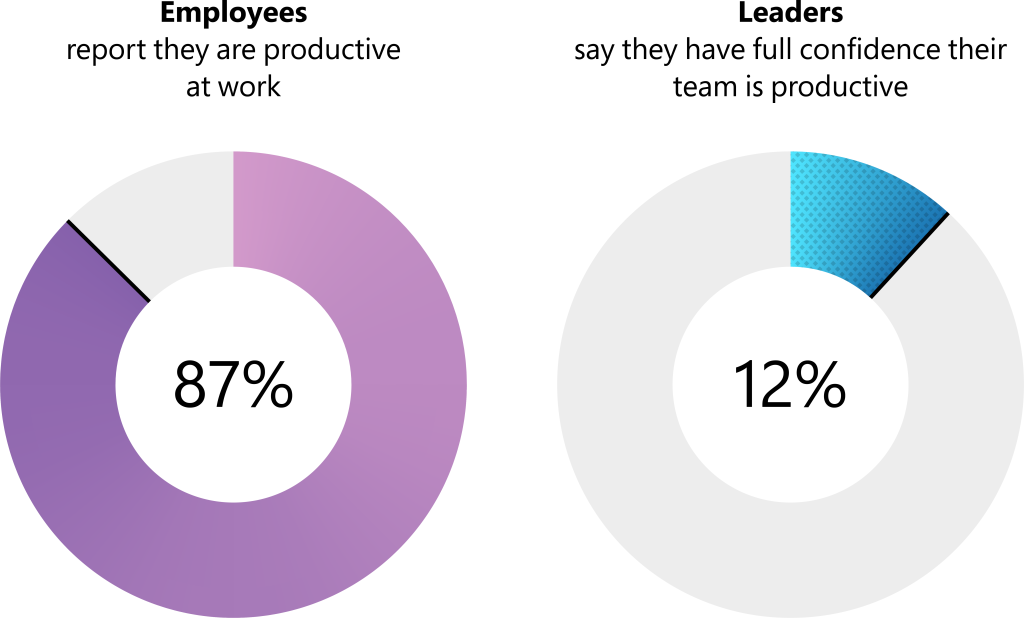Recent research from Microsoft on the situation of hybrid work: “Hybrid work is just work. Do We Have It Wrong? “, identifies a significant problem with business executives’ trust.
85% of executives have “productivity paranoia”, and find it challenging to have faith in their workers’ productivity due to the transition to hybrid work.
Table of Contents
85% of leaders have productivity paranoia

The difference between the percentage of leaders who say they are completely certain that their team is productive (12%) and the percentage of workers who say they are productive at work (87%) is glaring.
Microsoft reports that 85% of executives find it challenging to have faith in their workers’ productivity due to the transition to hybrid work.
Additionally, because employees lack context on how and why they are being watched, some firms utilize technology to measure activity rather than effect, damaging trust and resulting in “productivity theater.”
Because of this, bosses now have “productivity paranoia”, believing that workers aren’t working despite while hours worked, meetings attended, and other activity measures have gone up.
Clarity is the key to relieving paranoia
This paranoia over productivity might make hybrid work untenable. Instead of worrying about whether their employees are working hard enough, leaders should assist them in concentrating on the most crucial tasks.
Less than a third (31%) of employees think their managers have ever provided clear direction during one-on-one meetings, despite the fact that 81% of workers believe it is crucial for managers to assist them in prioritizing their job.
Starting at the top is necessary to solve this problem: More direction on setting priorities for their own work is seen by 74% of people managers as improving performance, and 80% of them feel they would personally gain more clarity from senior leadership on important goals.
(Learn more: Businesses are more assured about obtaining hybrid work)
Feedback keep your talents
Based on Microsoft, the feedback loop must be closed in order to keep talent.
When compared to workers who think their employers don’t use employee input to drive change, those who believe their employers do are happier (90% vs. 69%) and engaged (89% vs. 73%).
And what about the workers who don’t believe their employers make changes based on feedback? In comparison to those who do, they are more than twice as likely to consider quitting in the upcoming year (16% vs. 7%).
To keep an eye on your workforce, routinely gather employee input at the organizational, departmental, and team levels—Leaders should often discuss what they hear, how they respond, and why in order to foster engagement and confidence in feedback systems.
(Set up your feedback survey: 20+ Questions for your Hybrid Working Employee Survey)
Hybrid work is working
The results of Microsoft’s poll are unequivocal: hybrid work is profitable.
It would appear that corporate leaders rather than employees are the primary barrier to successful hybrid work. We hope that more leaders would pay attention to Microsoft’s findings and cease “productivity panic.”
Learn more about hybrid working news: https://ones.software/blog/category/hybrid-work/
Set up your hybrid working environment to cease “productivity panic.”: your All-in-one smart office system


